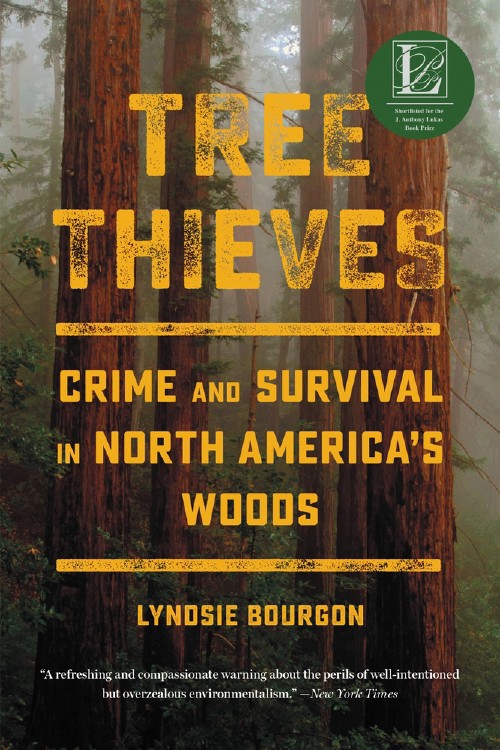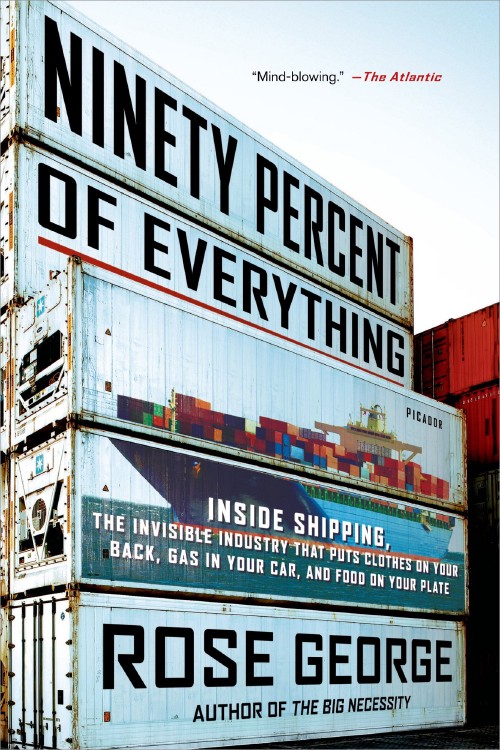This week, two somewhat unrelated events let me to reflect on my time working at Vox Media, in the Vox Product org. The first event was relatively newsworthy, because Vox Media made the decision to sunset Chorus, its custom CMS. The second event was a friend of mine, who’d been a PM on that product, had a goodbye party before she left for a new job. This party brought a bunch of old coworkers back together to celebrate her move.
I’ll start with the job context: Chorus is a custom CMS that sites like Vox, Eater, Polygon and more publish on top of. It has existed in some form since 2007, but really started to mature into a product Vox Media acquihired 3 of the co-founders who were at Editorially when it folded (Mandy Brown, Jason Santa Maria, David Yee) (they eventually convinced other cofounder, Ethan Marcotte, to spend a year at Vox Media working on the product, in a bit of poetic delight). Editorially, was a beloved startup that wasn’t able to find Product-Market Fit in time, and folded in 2014. The founders used what they had learned building Editorially to start improving Chorus. I had been an intern at Editorially when it folded and that connection was critical as a referral when I was looking for a full time gig in 2015. I joined Vox Product as a front-end dev on the revenue side of things.
Revenue, in the media world that we inhabited, meant adtech. Adtech is—in my personal opinion—some of the worst parts of the modern internet, but the hook was we were trying to figure out how to support journalism. A lot of other ad-tech companies (Google being one you might have heard of) claimed to do this indirectly, but working at Vox there was no need for any mental gymnastics to see the connection between ads and journalism: Vox Media had a ton of journalists working for it and a large part of its revenue came from display ads on the site. I could make peace with that.
Before joining Vox Media, my longest tenure at any job was 2 years. I was perfectly comfortable with that, I’d stay somewhere, learn what I could, and then move to a different job to learn new skills. I ended up staying at Vox for 6.5 years and it was a big decision to move on, because the people and culture were so compelling.
I think, unfortunately because I am me, I need to make a large aside about capitalism to get to what I’m thinking about. I would apologize, but I am working on accepting myself in all my messiness, so we’re just going to keep moving forward in this post. I will swear to make it fun.
First, can we just admit, it is very easy every day to ask yourself “what the fuck am I even doing?” if you have a wage-labor job today? That is an extremely justified question, all of the time. Let’s just start with the facts. In the United States, where I live and have always lived, my labor is worth, according to the federal law, at minimum $7.25 an hour. Unless, of course, I am a service-worker in a job with tips, in which case my labor is worth $2.13, as long as after tips my income adds up to $7.25 an hour, although there are basically no enforcement mechanisms to ensure that happens in reality.
A goddamn candy bar costs $1.60 or so in 2023, so the floor, federally, for “what an hour of human labor is worth” is like 1.4 candy bars. Great. The first ingredient in the “what the fuck am I even doing” salad is that I am trying to find a job where I can rent out my labor to a corporation in a way that allows me to think beyond “candy bars” as a legitimate way of measuring how much money will be going into my bank account on payday. Ideally, enough money to think beyond housing and food.
A wage-labor job—which is what the majority of people in the US have today—also requires us to obtain the job. We have to do a whole dance to convince a corporation to extend us a job offer and allow us to sign a contract with them that, in return for an hour of labor for whatever the company requires, we will be paid $Some Amount. This is the second ingredient in the “what the fuck am I even doing” salad: very few of the hundreds of millions of wage laborers in this country are spending our labor hours pursuing work that feels like the most useful output of our personal skills and creativity. The dream is to find meaningful work that feels good, but the reality is that is hard, and our need to pay rent and bills does not give us immense freedom to be choosy.
It is also a necessary thing to point out that for the majority of the country today, we are in a “right-to-work” world, which is a hilarious term that legally means: “corporations can fire you at any time for any reason, you fucking asshole.” Technically, sure, corporations are prevented from firing employees for reasons related to protected attributes (disability, race, sex, sexuality), but you’ll forgive me if I understand that to be an absolutely useless protection since they can fire you for literally any other reason at any time. Your employment contract—if you aren’t unionized—is a document that says (and I’m not a lawyer, so it might be worse, i am generalizing) “you owe us loyalty in all these ways, if you break these rules we can fire you, and also if you don’t break them, we can fire you, and we make no promises to you except those which we are legally required to make.”
Corporations are actually also kind of an important entity here; they are a wild assemblage of humans and money that function legally as an individual thing. In America, not just a “thing” but an individual entity, a “corporate person”. These corporations, which are made up of both humans and assets, are legally bound not to the humans that labor to achieve their goals, but rather to money; in the form of debt allegiances to shareholders or owners. The people in charge of corporations (the C-Suite as we refer to them) are legally bound to prioritize money over people; that’s what it means to say they have a “fiduciary duty to maximize shareholder value.”
This requirement brings us to the last ingredient for the “what the fuck am I even doing” salad: corporations are reliant on wage-laborers to maximize their value, but nothing that the wage-laborers do is actually valuable to them, in terms that you and I as laborers might think is important. In order for us to get the wages, we need to do whatever is determined as most important and valuable at any one moment, but the legal requirement for fiduciary value means that the people who run a corporation must never treat the work their employees do—the labor that each person is pursuing in service of the corporation—as having any intrinsic value. It is only ever worthwhile if it is actively creating monetary value for the company. No mattery how many years of labor you put towards a thing, it’s only valuable insofar as the company continues to need it for profits. If that’s no longer the case, well, goodbye.
I have to make this big aside because I want to be clear about the context I’m thinking in: wage labor employment is a terrible system where workers are subject to the whims of legal entities that have immense amounts of money and legal obligations not to humans but to money (to increasing it, specifically). What the fuck are we doing, for real.
Employment in this system is demoralizing. It can be hard to spend a good portion of your life developing skills, intelligence, and passions, only to have to apply them inside working environments that are precarious and inhumane.
So I think what I find notable is that the reason I stuck around for over 6 years at Vox Product is my experience there was… good. Wonderful, even? This is absolutely an anomaly.
Vox Product was about 40 people when I started, and approaching 200 when I left. During the course of my tenure, the consistent factor about the group of humans in that org was they were all interested in solving complex problems with curiosity and kindness. I’d often describe the broader org as “ambitious and kind”, which felt novel to me. I think actually, prior to my tenure at the company, I would have placed those two terms on a spectrum, and said you got to be one, or the other, but being both was not possible. That was born of experience, sure, but also because so rarely do humans get the space to practice both (in waged labor situations).
But that’s what we did. We tried to make sense of how “new media” (the term for internet-based media startups) worked. How it could possibly be successful and sustainable. Thanks to a leadership that was willing to listen to long-term arguments, we’d define principles (such as: no ads that block content) and then work to prove that these principles were viable. We had freedom to ask really big questions and encouragement to spend a reasonable amount of time exploring potential answers.
We had the freedom to built practices that led to collaboration and context building, rather than siloing and territory defense. Those freedoms diminished over time, but they weren’t lost, even as we dealt with scale and changing market environments.
I started this post thinking I might tell some stories, give some examples of what that looked like in practice, but I think that’s not so interesting. I could tell you about various projects I observed (I was never on the team directly building Chorus), or projects I worked on when we tried to figure out a path to sustainable revenue generation for new media. Maybe one day I will! But not in this post.
I think the whole reason I want to think in the context of the broader wage-labor system—that fucked up, terrible system that shows no signs of dying—is that my experience with the Vox Product team taught me that the system defines the rules, but it’s still possible to create space for alternatives inside the system. Thanks to leaders at Vox Product—here I’m thinking of people like Mandy, Trei, Brian, Megan, Melissa and so so many more—the org was given space to build trust and safety. That was not accidental, it can never be accidental. But the work was done to create the space, and for a solid few years, that space was amazing.
In it, we (the Vox Product we) built a bunch of interesting products. A CMS that journalists loved, and would complain about missing when they went to new jobs. Audience experiences that were so boring and reliable that people just used them, without needing to complain (mostly). Adtech that I’m proud of! I’m fucking proud of adtech I built, and I hate ads so much. Burn them all to the ground. But I was able to work on teams where we built things that earned revenue without (as much as possible) punishing visitors to the sites. That was immensely hard, but the fight was encouraged.
I have this impulse to try and analyze what made Vox Product so good, as in some takeaways or lessons or whatever. But today, on the call celebrating a friend’s new job, what was clear was that the work we were able to do in that period wasn’t an easily replicable thing. It was a contextual, complex result of a bunch of people being willing to do a lot of hard work creating space for solving problems. Had different people been there who knows what it would have looked like.
The US corporate system is not a great system for building sustainable human organizations that get to work on meaningful things with some sense of permanency. Money and markets are too fickle for that. Profits require growth, which often requires unsustainable pursuits. But what I learned from my years on Vox Product is this system has not destroyed all possibility for meaningful work. I just had to realize that the meaningful part of the work wasn’t the technology, it was all the work we did to make life under capitalism bearable. That work hasn’t been killed, and remains valuable, and may yet give us some ways out of this other bullshit. The people I worked with were the critical differentiator. We fought to create space to be human inside a system that is inhumane. What a wild thing it is that we found some success, for a period.
Cheers to that.
(The original version of this post incorrectly suggested the Editorially team created Chorus, when in fact its existence predated their joining Vox Product!)



